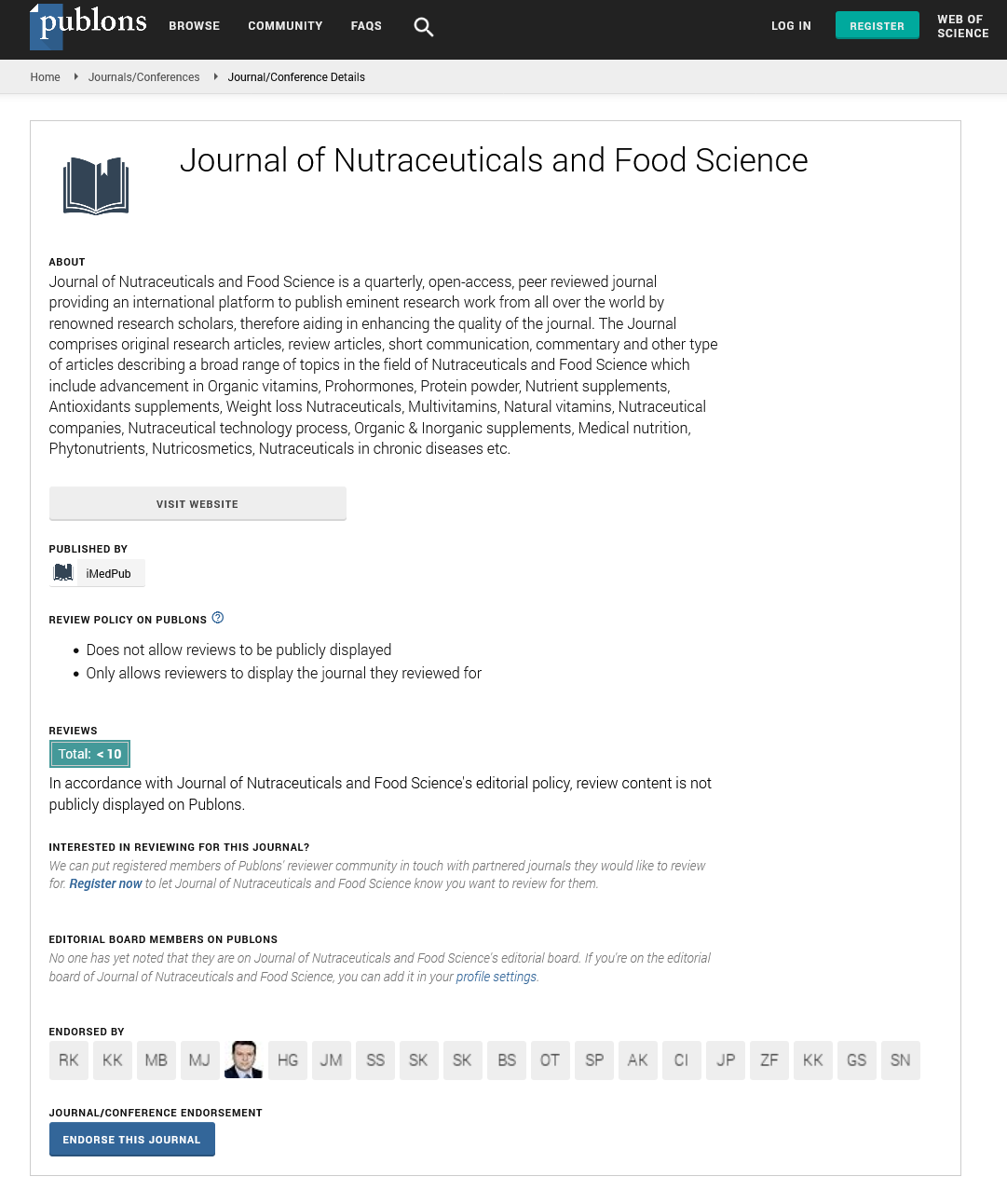Abstract
Antinutrational Factors in Plants, Potential Application and its Adverse Effect
Anti-Nutritional Factors (ANF) are chemicals that reduce nutrient utilization and/or food intake in plants or plant products used as human diets or animal feeds, and they play a key role in determining how humans and animals use plants. The goal of this review was to establish a baseline of knowledge on anti-nutritional factors in plants and their negative effects, as well as to clarify the impact of anti-nutritional factors in plants, testing methodologies, unfavorable effects, and prospective uses. Plants can be classified based on their chemical structure, specific activities they cause, or bio-synthetic origin. While this classification does not contain all anti-nutritional factors known to exist, it does include a list of those that are often found in human and animal diets. Heat stable anti-nutritional factors include phytic acid, alkaloids, tannins, saponins, and gluconosilates, while heat labial antinutritional factors include (lectins, proteinase inhibitors, cyanogens, -galactosides). anti-nutrients in food cause a wide range of problems with nutrient and micro-nutrient absorption. anti-nutrients, on the other hand, can be beneficial to your health in little doses. phytic acid, lectins, tannins, saponins, amylase inhibitors, and protease inhibitors, for example, have been demonstrated to restrict nutrient availability and inhibit growth. Phytate, lectin, tannins, amylase inhibitors, and saponins, when administered at low doses, have been proven to reduce blood glucose and insulin responses to starchy foods, as well as plasma cholesterol and triglyceride levels
Author(s):
Welela Meka
Abstract | PDF
Share this

Google scholar citation report
Citations : 393
Journal of Nutraceuticals and Food Science received 393 citations as per google scholar report
Journal of Nutraceuticals and Food Science peer review process verified at publons
Abstracted/Indexed in
- Google Scholar
- Publons
- Secret Search Engine Labs
Open Access Journals
- Aquaculture & Veterinary Science
- Chemistry & Chemical Sciences
- Clinical Sciences
- Engineering
- General Science
- Genetics & Molecular Biology
- Health Care & Nursing
- Immunology & Microbiology
- Materials Science
- Mathematics & Physics
- Medical Sciences
- Neurology & Psychiatry
- Oncology & Cancer Science
- Pharmaceutical Sciences


